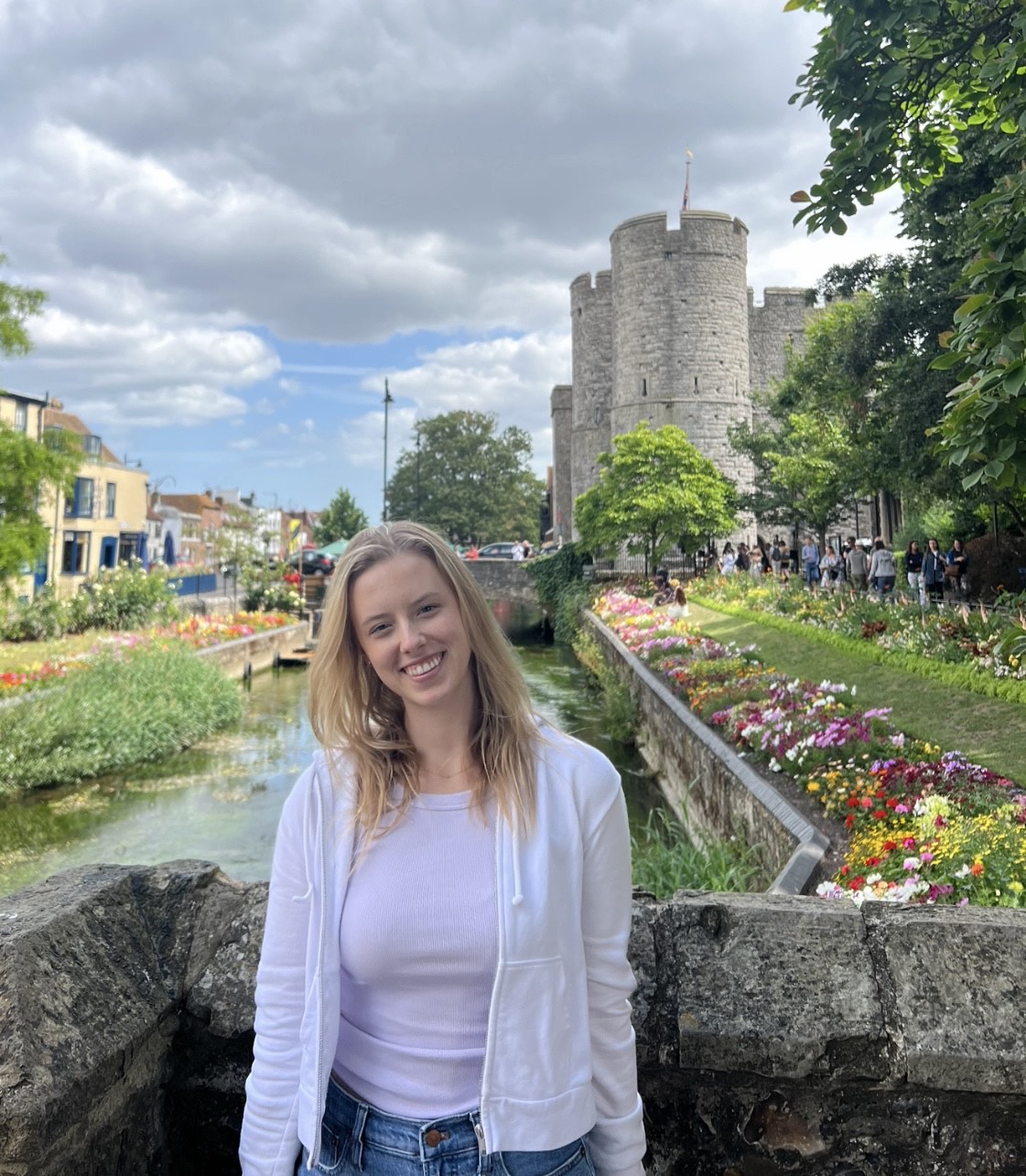Julia Lehr is a rising fourth-year majoring in Psychology and Global Health. Along with Isabelle Day, she plans to create a comparative companion to their research from last summer.
Tell me about your SURG topic.
Lehr: Last summer, we were studying the perception of risk of childbirth from 1993 to present in the U.K. Specifically, we were in London for four weeks and then we were in the U.S. for the second half. We spent most of our time at the Wellcome Collection, which is an archive library in London, and got to see a bunch of documents that the public can’t normally access. We had to go in and request individual things, but it was really cool. We spent one day at the Royal College of Obstetricians and Gynecologists looking at their archives. It was really cool. We’re continuing our research this summer. We’re doing the U.S. version this summer so we can compare.
How does having a research partner impact how you do research?
Lehr: It works out because we’re best friends. Because our topic is so large, we’ve been able to cover more with two people instead of just one. For instance, when we were in London, there was a huge amount of resources we had to cover in four weeks. We split up in terms of topics. Our project was public physicians and hospital guidelines, so I took public [physicians] for a majority of the time in London and she did more of the hospital guidelines [from a] physician’s perspective. I was looking through newspapers and magazines and childcare books that were aimed at the public to see what the messaging was like, whereas my research partner Isabelle was looking into the other side of it, what were doctors being recommended to do, in order to get a more holistic picture. If it was just one of us, we would be missing an aspect of it.
How do you think this research will help you going forward?
Lehr: I definitely discovered my love for maternal health, and especially from an international perspective too. I studied abroad in Paris and did the public health program there so a lot of pieces are falling into place in terms of my passion and exploring the medical side. I do want to go to medical school, so it’s giving me a really important background considering a bunch of different perspectives and the social impact, rather than just going into the science aspect of medicine.
Meet the other SURG Recipients!
